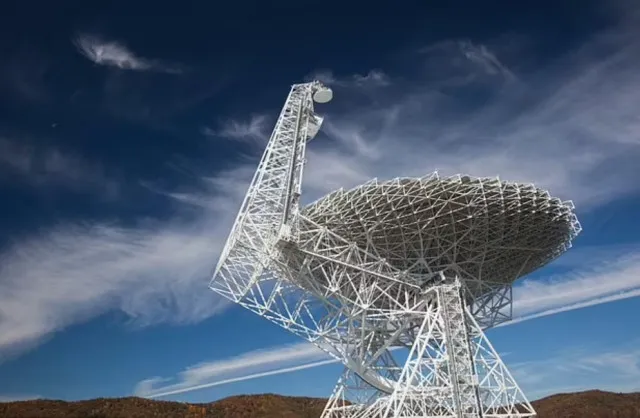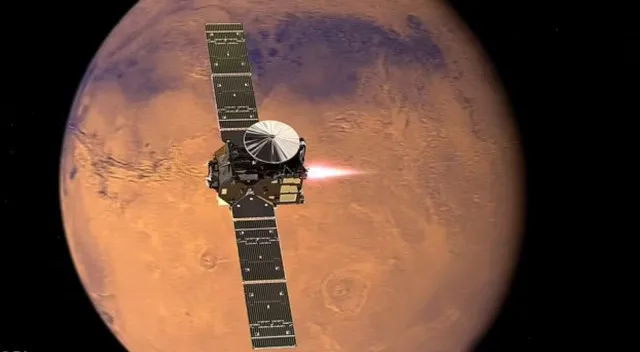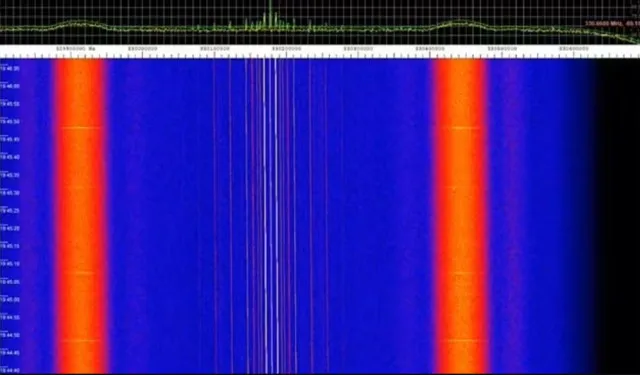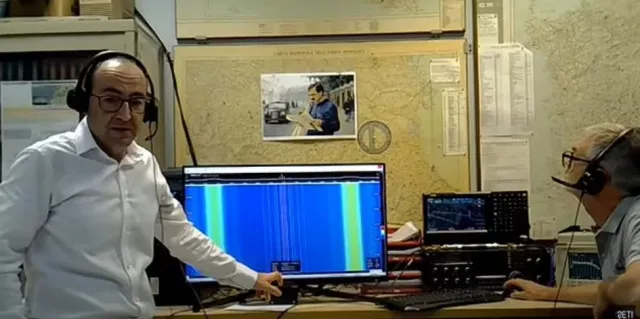Scientists captured what they believe is the first alien message and invited the public to help decode these simulated signals.
Recently, scientists have successfully captured a simulated message from Mars, sparking excitement and curiosity across the globe.
This moment marks a significant step toward understanding potential extraterrestrial communication.
The European Space Agency’s ExoMars Trace Gas Orbiter transmitted the message, which three major telescopes on Earth intercepted.
The scientific community is now calling on the public to assist in decoding this intriguing signal.

At 3 PM ET, the simulated alien message was transmitted from Mars.
It took just 16 minutes for three powerful telescopes to capture the radio waves.
The Allen Telescope Array in California, the Robert C. Byrd Green Bank Observatory in West Virginia, and the Medicina Radio Astronomical Station in Italy played key roles in receiving this signal.
Each facility contributed significantly to capturing the potential extraterrestrial communication.
This project aims to prepare humanity for the possibility of genuine contact with extraterrestrial life in the future.

The initiative is organized by the SETI Institute, a non-profit organization dedicated to the search for extraterrestrial intelligence.
Scientists involved in the project expressed their exhilaration when the signal appeared on their computer screens.
The radio waves were recorded in segments, making this process a unique scientific endeavor.
Interestingly, amateur radio operators were also able to pick up parts of the message at a frequency of 8.4 gigahertz.
The key details of the Alien signal project
The details of the signal remain largely confidential, as the researchers want to keep certain aspects under wraps until the public receives the data.
The excitement lies in the fact that anyone with an interest in science and space can participate in this decoding effort.
Researchers will make the processed data available online.

This will allow individuals to use their skills and insights to help decipher the message.
Daniela dePaulis, a visionary artist associated with the project, emphasized the realism of this simulation.
She noted that this is not the first signal sent from the ExoMars orbiter. However, it is a genuine message that could significantly impact humanity.
The project aims to prepare individuals for a potentially life-changing event.
This event could involve receiving communication from an extraterrestrial civilization.
Once the team fully captures the radio waves, they will upload the information for public access.
They will provide two links on SETI’s social media platforms, allowing everyone to download and analyze the data.

The files will be available in different formats, with one being linked to the Green Bank Observatory, which received the strongest signal.
All the files, however, will contain the same fundamental information.
This project is more than just decoding a message; it shows how people can work together in science.
By letting the public join in, researchers highlight the need for community involvement.
The project also sparks curiosity and creativity, allowing individuals from different backgrounds to share their ideas in this important task.
A team from the University of Toronto has recently created an algorithm.

This algorithm can tell the difference between artificial signals and those that may come from extraterrestrial sources.
This advancement in technology is crucial as the search for alien life continues.